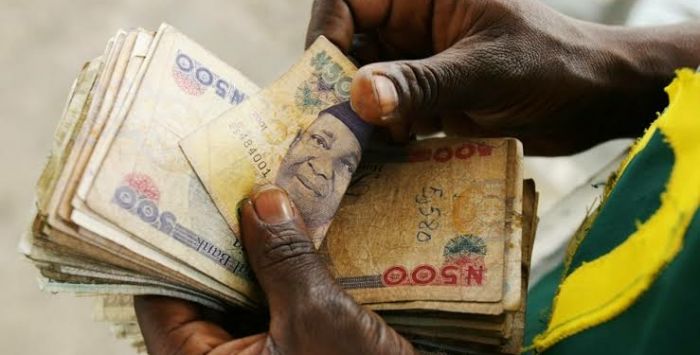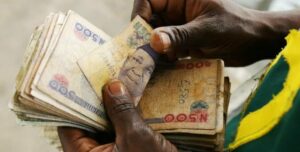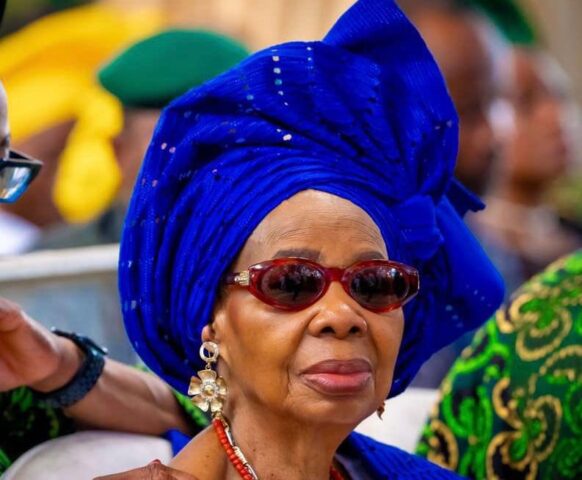Tinubu’s Govt Set To Restart Direct Cash Transfers To 12 Million Nigerians
The Nigerian Federal Government has announced its intention to resume providing direct cash transfers to the most impoverished and vulnerable citizens.
Currently, around three million individuals benefit from these programs. However, with the rising cost of living, the government estimates that an additional 12 million households may become eligible for these direct payments.
During the Ministry’s retreat yesterday in Uyo, Akwa-Ibom State, the Minister of Finance and Coordinating Minister for the Economy, Wale Edun, disclosed the incumbent government’s plan to restart the initiative.
Edun said: “The presidential panel on the social investment programs have prepared to go to Mr. President with an internal recommendation to restart the direct payments to the poorest and the most vulnerable. Everything is being done to ease the pain.
“We know that there have been about three million beneficiaries now, but given the way the rates have gone, there are probably another 12 million people, households that can benefit from that payment.”
The minister emphasized that the extension of the direct cash transfer program is intended to benefit a larger demographic facing financial hardships by providing additional funds directly to those in greatest need, empowering them to address their priorities and reduce poverty.
Edun highlighted that the utilization of technology will guarantee efficient and transparent transactions, eliminating the need for manual procedures and preventing delays.
“The only thing delaying that is not waiting for the end of the report. It is something that the intervention is meant to happen immediately.
“We have experts in technology, the commitment was to make sure that we use technology to ensure that we have a seamless payment, a seamless movement between the registered and the direct beneficiaries, without any manual processes in between. So it’s taking time to automate that process immediately that direct payment will resume,” Edun noted.
Recognizing the significant impact of food prices on household budgets, the government is implementing measures to enhance food accessibility and reduce expenses.
The minister emphasized President Bola Tinubu’s initiative to release 60,000 metric tonnes of food grains.
He stated that the government’s objective is to ensure that food and feed are readily available in the market, with the aim of lowering food costs. Currently, this is our main priority from a fiscal and governmental standpoint, Edun reiterated.
In defence of the plan to directly transfer cash to the poorest and most vulnerable individuals in society, Edun argued that historical evidence has demonstrated that when individuals receive direct payments, it empowers them to address their most pressing needs. This approach, he said, effectively reduces poverty.
The minister added: “So it is a direct benefit, it has a direct effect on poverty. It alleviates, and there’s a commitment to immediately start that process. So that is, as far as these interventions are concerned and the landscape which we as a team are facing, we have a commitment to help to bring down inflation”.
“Growing the economy, creating jobs and lifting millions and millions of Nigerians out of poverty, that’s the ultimate goal of President Bola Tinubu and his economic policies.”
The minister acknowledged that the historical reliance on “Ways and Means” financing was a source of inflation. The government, he said, is committed to reducing this debt burden through various financial and revenue-generating initiatives.
He stated, “On the monetary side, Ways and Means have been identified, and we too agree that the historical legacy of Ways and Means that was inherited has to be dealt with, and has to be paid out one way or the other. And those are the financial engineering, those are the revenue initiatives that we are focused on to remove that burden, that inflationary burden on the economy.”
Edun emphasized the importance of strong cooperation between the Ministry of Finance and the Central Bank in addressing inflation and maintaining the stability of the Naira.
The Central Bank of Nigeria (CBN), he noted, is employing a range of strategies, such as controlling interest rates and overseeing foreign exchange rates, to reach these objectives.
The minister noted, “It is a battle, and the tactics change because there is a loss or a need to restore the value of the naira, a need to restore the confidence in holding the naira as a store of value. And all the arsenal, all the instruments available are being brought to the fore and used. And surely, it is a battle the central bank will win. It is a battle the government will win. That is not a doubt.”





